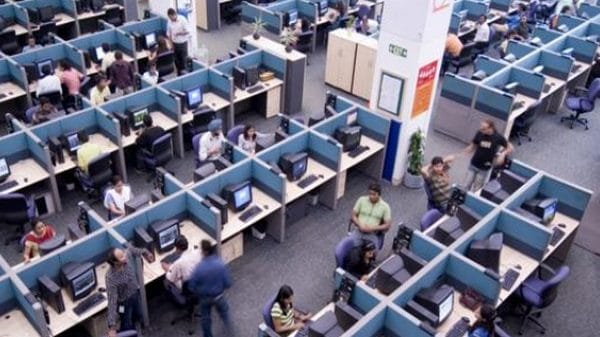The Great Resignation of 2021 saw an unprecedented number of employees voluntarily quitting their jobs, drastically shrinking the workforce. In the United States alone, 47 million people quit their jobs. This trend, already in motion, was accelerated by the pandemic. In India, the Centre for Monitoring Indian Economy reported that over half of 900 million eligible citizens stopped looking for jobs in 2022. In 2024, India’s youth unemployment rate is staggering and disturbing — at 83 per cent. This spells a crisis.
The World Happiness Report 2024 states that well-being has fallen in North America, Western Europe, the Middle East, North Africa, and South Asia for 15 to 24-year-olds since 2019. The most influential factor in happiness is a sense of purpose at work. Gen Z is becoming increasingly dissatisfied with work due to values misalignment, perceived lack of recognition and reward, economic instability, and lack of access to managers and investment in career development. Their early work experiences, massively disrupted by the Covid-19 pandemic, have led to a chaotic introduction to the workforce, and the strong presence of remote work made the situation worse. The trade-off between work flexibility in remote work and empathetic in-person interactions has exacerbated their dissatisfaction and incongruence.
Managers critique Gen Z for their perceived lack of “work readiness” and professional skills, citing challenges in fostering effective communication, professional etiquette, and conflict resolution—skills traditionally honed through consistent in-person interactions. Concurrently, Gen Z’s tendency to switch jobs frequently and take more mental health days is seen by senior leaders as precocious and entitled, further deepening the challenge to create cohesive, productive teams. Despite being seen as the most entrepreneurial generation working multiple jobs, Gen Z expresses dissatisfaction at work and harbours anxiety about economic stability and financial futures, preferring permanent employment.
These paradoxes are the foundation of an alarming reality: Gen Z is now the generation reporting the highest levels of burnout of any other generation. A reality underscored by its recognition in the 11th Revision of the International Classification of Diseases (ICD-11) as “a syndrome conceptualized as resulting from chronic workplace stress that has not been successfully managed. Three dimensions characterise it: i) feelings of energy depletion or exhaustion; ii) increased mental distance from one’s job, or feelings of negativism or cynicism related to one’s job; and reduced professional efficacy”.
With a growing young workforce that is unhappy, burnt out, and more vocal about it than others, companies must adeptly navigate a multigenerational workforce. Traditional management norms are inadequate and do not meet the demands and needs of younger employees from their workplaces. Despite 70 per cent of organisations acknowledging the necessity of mastering multigenerational leadership, only 10 say they are confident doing so. This unpreparedness will not only affect workplace culture and morale; it will have a sharp impact on profits and shareholder value too.
Better workplace culture and learning and development opportunities for confident and engaged employees are top-down responsibilities that companies must commit to retain and develop the next generation of workers and leaders.
Also read: Indians have a toxic relationship with overwork culture. They are taught ‘work is worship’
What should I do as a leader?
Studies unequivocally find that companies with strong cultures perform significantly better financially. Truly inclusive workplaces grow revenue three times faster than their competition. Great Place To Work defines company culture as “how you do what you do in the workplace”, encompassing formal and informal systems, behaviours, and norms for employees and customers. Such norms directly influence how individuals work in teams. Google’s Project Aristotle, which explored effective team dynamics, highlights psychological safety as paramount for team success (NYT, 2016) — that is, teams that foster an environment where members feel safe to voice ideas and admit failures perform better and drive innovation.
Creating psychologically safe environments requires companies to enhance individuals’ emotional awareness of others’ feelings through verbal and non-verbal cues. To develop these skills in employees, companies should offer coaching and mentoring to not only their senior leaders but younger employees too. Senior leaders will benefit from 1:1 coaching, which works on building the specific awareness and skills needed to lead intergenerational teams effectively. However, there is evidence that accessibility to coaching across the board facilitates better work-related outcomes for individuals and their teams. For example, Chipotle provided BetterUp’s 1:1 coaching to every employee, resulting in a significant increase in positive performance reviews and promotions. For younger employees, companies should consider coaching formats that are adapted for their audience. Group coaching, for example, has proven to be an effective delivery method for younger employees as peer support accelerates development, connection, and accountability, which builds the interpersonal skills needed to support psychologically safe work environments.
Without fostering psychological safety and providing adequate learning and development opportunities to mitigate generational isolation in the workplace, younger employees remain vulnerable to burnout, stress, and high turnover — issues a pizza party cannot fix. Leaders must prioritise creating such environments that encourage engagement and invest in improving all employees’ interpersonal and leadership skills. This proactive approach not only minimises attrition but also sustains a robust talent pipeline, increased revenues, and shareholder value. Organisations that fail to adapt to these imperatives risk being left behind in today’s dynamic landscape.
Iti Bhargava is a mental health researcher at Sukoon. She tweet @itibhargava. Madeline Miller is a former Hollywood entertainment lawyer. Views are personal.
(Edited by Humra Laeeq)






